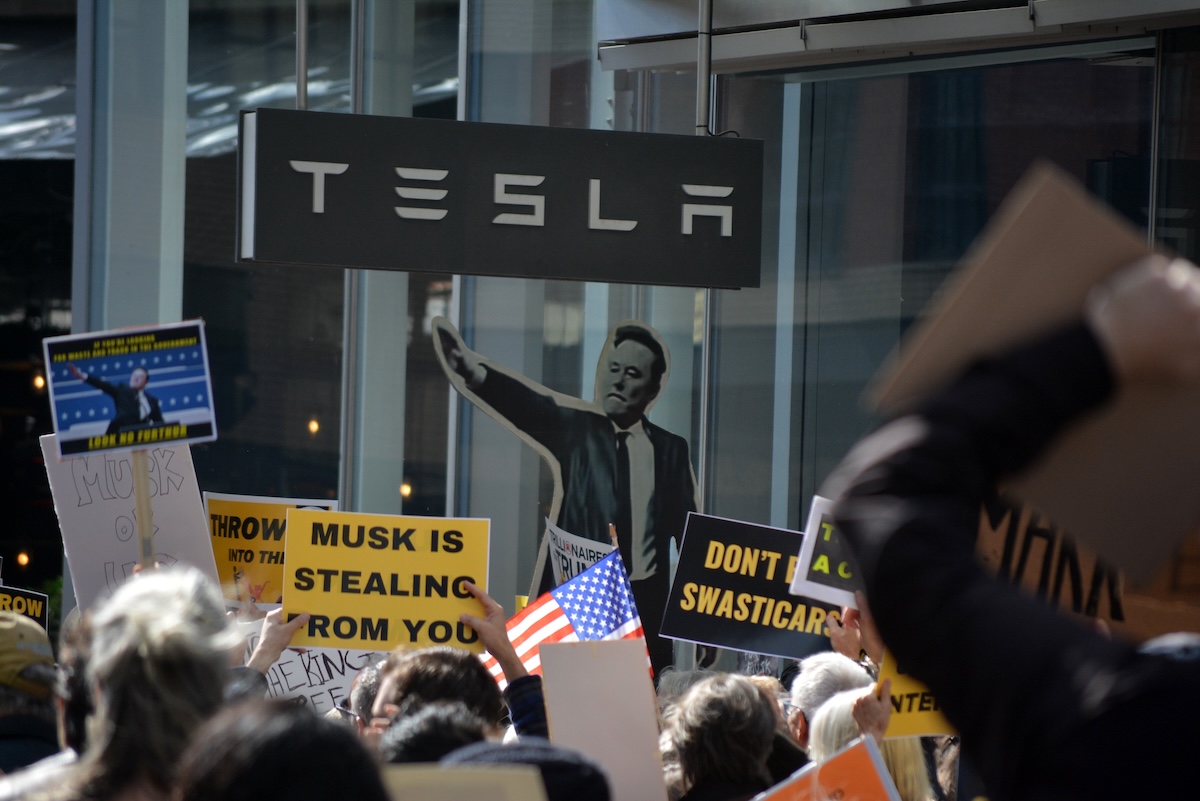
A former ally turned Trump adversary has made it harder to predict Tesla’s (TSLA) path forward, with analysts warning that Elon Musk faces an uphill battle to get his EV giant back on track.
JPMorgan is the latest major institution to raise red flags after Tesla’s dismal first quarter, during which automotive revenue plunged 20%.
But it’s not just about the numbers. The bank says political risks tied to Musk’s ties with Trump are now front and center.
“We struggle to think of anything analogous in the history of the automotive industry, in which a brand has lost so much value so quickly,” wrote JPMorgan auto analyst Ryan Brinkman.
Brinkman also cited Trump’s proposed "Big, Beautiful Bill" as a red flag for Tesla. The legislation would eliminate federal EV tax credits that the company has leaned on to drive demand, especially in the U.S.
As a result, JPMorgan slashed its TSLA price target to $120, which represents al 63% downside from today’s price.
Not everyone is fleeing, though.
Earlier this year, Wedbush analyst Dan Ives had cut his forecast from $500 to $315 in a move that aligned with most of Wall Street at the time.
But he has since doubled down on Tesla, reversing a previous downgrade and reinstating a $500 price target, citing Musk’s renewed focus on the company.
That would represent 52% upside from where TSLA trades today.
According to The Wall Street Journal, the average price target for TSLA is now $306, which implies 6% downside from current prices.
Will the “Muskonomy” regain momentum?
Tesla isn’t the only Musk-led company facing political headwinds.
As Investors Observer recently reported, SpaceX may be at risk of losing government contracts due to growing concerns in Washington about the administration’s deep reliance on Musk’s companies.
But while critics warn of backlash, Morgan Stanley is keeping its eye on what it calls the “Muskonomy,” a broader economic ecosystem powered by Musk’s ventures in EVs, space, and AI.
“In many ways, we believe Tesla's role in the 'Muskonomy' is more important than ever before,” the analysts wrote.
The firm argued that the next six months will be key in proving that Tesla is “more than just a car company” and that its tech and energy ambitions can support long-term growth even without federal EV incentives.
Your email address will not be published. Required fields are markedmarked